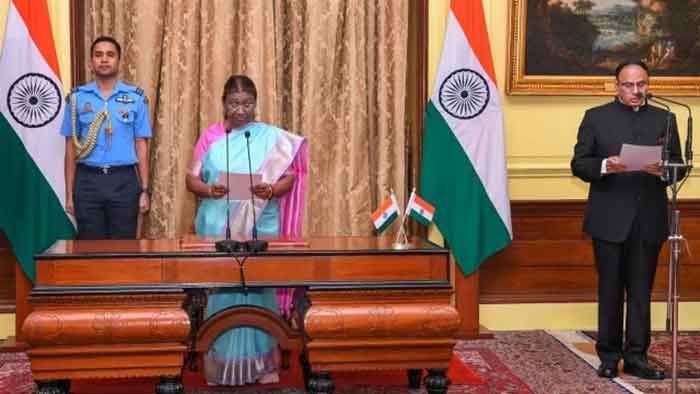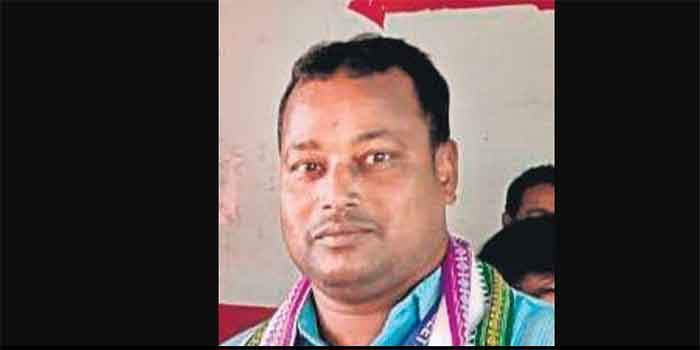
People of this country have a right to know every public act, everything done in a public way, by their public functionary. They are entitled to know the particulars of every public transaction in all its bearing.”
– Justice Mathew, Supreme Court of India,in State of Uttar Pradesh vs Raj Narain, 1975
“No democratic government can survive without accountability and the basic postulate of accountability is that the people should have information about the functioning of the government… that an open society is the new democratic culture towards which every liberal democracy is moving. Our society should be no exception.”
– Justice P. N. Bhagwati, Supreme Court of India, in S.P. Gupta vs Union of India, 1981
“The citizen’s right to know the facts about the administration of the country is thus one the pillars of a democratic state. And that is why the demand for openness in the government is increasingly growing in different parts of the world.”
– Justice P. N. Bhagwati
Having read these statements of some very eminent previous judges of the Supreme Court of India, kindly now refer to what the Supreme Court had to say very recently on October 30, 2023. The Supreme Court said that the Right to Information (RTI) Act is fast becoming a “dead letter law”. 7 of the 11 information commissioner (IC) posts in the Central Information Commission are vacant and the body will become defunct if replacements for the 4 incumbent commissioners due to retire in November are not filled in time. Due to similar non-filling of IC posts in time, Telangana’s State Information Commission has been defunct since February 2023, Tripura’s SIC since July 2021 and Jharkhand’s SIC since May 2020. There are shortages of ICs due to unfilled posts in several other SICs too with the result that appeals have been piling up—a many as 115,000 in Maharashtra alone.
This is the situation despite the fact that as early as 2019 the Supreme Court had already directed governments to fill up such vacancies without delays. This raises serious questions regarding the commitment today to such an important strength of democracy as RTI. The present situation is very sad, as earlier India’s RTI efforts had been admired internationally. This writer still remembers the days leading up to and following RTI legislation in India when at international seminars the story of India’s RTI journey would get special attention and applause as here this journey had been led by people’s grassroots struggles.
The efforts and yearnings of about 15 years culminated in fairly satisfactory RTI legislation being passed in India in the year 2005. Two aspects of the RTI movement in India are quite remarkable and demand wider attention.
Before the right to information movement in India, the demand for this right was generally not related to the struggles of the poor. However in India this demand rose from the struggles of the peasants and workers in Rajasthan being mobilized by the Mazdoor Kisan Shakti Sangathna (MKSS). This became an integral part of the struggles of the MKSS and other organizations to improve rural employment and drought relief work which play an important part in sustaining life and livelihood in Rajasthan. This trend of RTI being used to serve the needs of the poor was maintained in other struggles in Uttar Pradesh, Madhya Pradesh, Maharashtra, Delhi and elsewhere.
Secondly, it is quite remarkable that while in the beginning of this campaign – say around the year 1990 – there was very little support for RTI and in fact a lot of misgivings were expressed about it, by the time the legislation was discussed in Parliament in year 2005, such a strong base had been created for its wide acceptability that even politicians known to be opposed to it were not inclined to voice their feelings publicly. It is interesting and significant how this public opinion in favour of RTI was created within a relatively short period of about 15 years or so. At least a part of the credit should go to the several small groups who worked for this cause. There was a National Campaign for People’s Right to Information and other groups at the state-level. At times all these efforts taken in isolation appeared to be quite small and inadequate. But taken together their efforts to keep the issue alive on a continuing basis appear to have been quite effective and when other circumstances also became favourable, then fairly strong national level legislation would be passed.
During these 15 years at various times state-level RTI laws were enacted by nine state governments including Tamil Nadu, Goa, Rajasthan, Maharashtra, Delhi, karnataka, Assam, Madhya Pradesh, Jammu and Kashmir. In some states administrative orders were passed for RTI at the village council level or for some selected departments. Some Chief Ministers like Digvijay Singh (Madhya Pradesh), Ashok Gehlot (Rajasthan) and Sheila Dikshit (Delhi) spoke strongly in favour of RTI. However most of the state laws were relatively weak. In Goa despite the law being weak, however, during the very first year the government received about 400 requests for information. Many of these were related to pollution. M.K. Jose and his colleagues made effective use of this legislation to expose several irregularities particularly those relating to banking and educational institutions.
In Rajasthan a strong grassroots movement for right to information had emerged demanding the right to information. The most remarkable aspect of RTI use at grassroots in Rajasthan was the exposure of corruption in the use of rural development/relief funds at the village level and the organization of public hearing (jan sunwais) for this purpose. In some villages this led to such a situation that elected representatives admitted corrupt places publicity and even agreed to return the money. This entire exercise of jan sunwais was a very democratic effort in which almost the entire village community became involved at most places.
Some other organizations in Rajasthan followed the good work done by MKSS. One of the most successful ones is the effort of Jagruk Nagrik Manch (helped by Urmul Jyoti Sansthan) in Nokha block of Bikaner district, Rajasthan. JNM claimed to have tackled effectively nearly 400 issues of corruption leading to the return of almost one million Rs. to people who had been victims of corruption. JNM also exposed a major fraud in the public distribution system as a result of which the corrupt dealer agreed to return all the ill-gotten money to the village community (whom he had swindled earlier) and also agreed to surrender his dealership.
In Maharashtra earlier very weak legislation was enacted but sometime later – thanks partly to a movement launched by social activist Anna Hazare and his fast which attracted national attention – a highly progressive legislation was passed. Several persons like Sailesh Gandhi and Prakash Kardley made effective use of RTI to expose a wide range of irregularities. A case relating to files of police transfers and recommendations of politicians for these transfers attracted wide attention.
In Bharavan region of Hardoi district, Uttar Pradesh, an effort was started by villagers who started questioning why benefits of development funds were not reaching them. They were helped by activists of Asha Ashram, Lalpur, to use the tool of RTI as panchyat level. Despite several initial difficulties in obtaining information when relevant records of ten panchyat areas were received very high level of fraud was exposed.
In Badwani district of Madhya Pradesh benefits of drought relief work could not reach villagers in great need of this work as work was given to contractors who used big machines in gross violation of government’s directives aimed at maximising benefits to needy people. Adivasi Mukti Sangathan used RTI to get information which revealed that persons who were not even present in village were shown to have been employed. These cases were exposed at a public hearing organized in May 2003.
Earlier Commissioner of Bilaspur Division (Chattisgarh), Harsh Mander with the help of other officials and social activists introduced significant experimental work regarding right to information. These experiments clearly proved the effectiveness of right to information legislation, particularly in important areas like improving the public distribution system and reducing corruption.
In Meghalaya, a small but strong movement demanding RTI emerged, although no RTI legislation had been enacted so far in this state.
In the urban context good results using RTI were obtained by Parivartan and later by Satark Nagrik Sangathan organisations in Delhi. Several other organisations incorporated RTI in their work in slums and resettlement colonies of Delhi so that the message about the new legislation could reach more people. In fact a women’s organisation Jagriti Mahila Samiti was the first to take RTI’s message to slums and other colonies of Delhi.
Thus even before the passing of national-level RTI legislation in India there were many effective examples of using RTI for checking corruption and irregularities, using state-level or panchayat level laws or directives and these continued later. These efforts were strengthened when better, stronger RTI law was passed at the national level. Effective use of RTI started spreading quite rapidly in the country. Hence it is sad that recent neglect has led to the weakening of this law. This trend should be checked so that strong RTI remains a strength of India’s democracy.
Bharat Dogra is a former Convener of the National Campaign on People’s Right to Information. He has written several books, booklets and articles on India’s RTI experience.













































